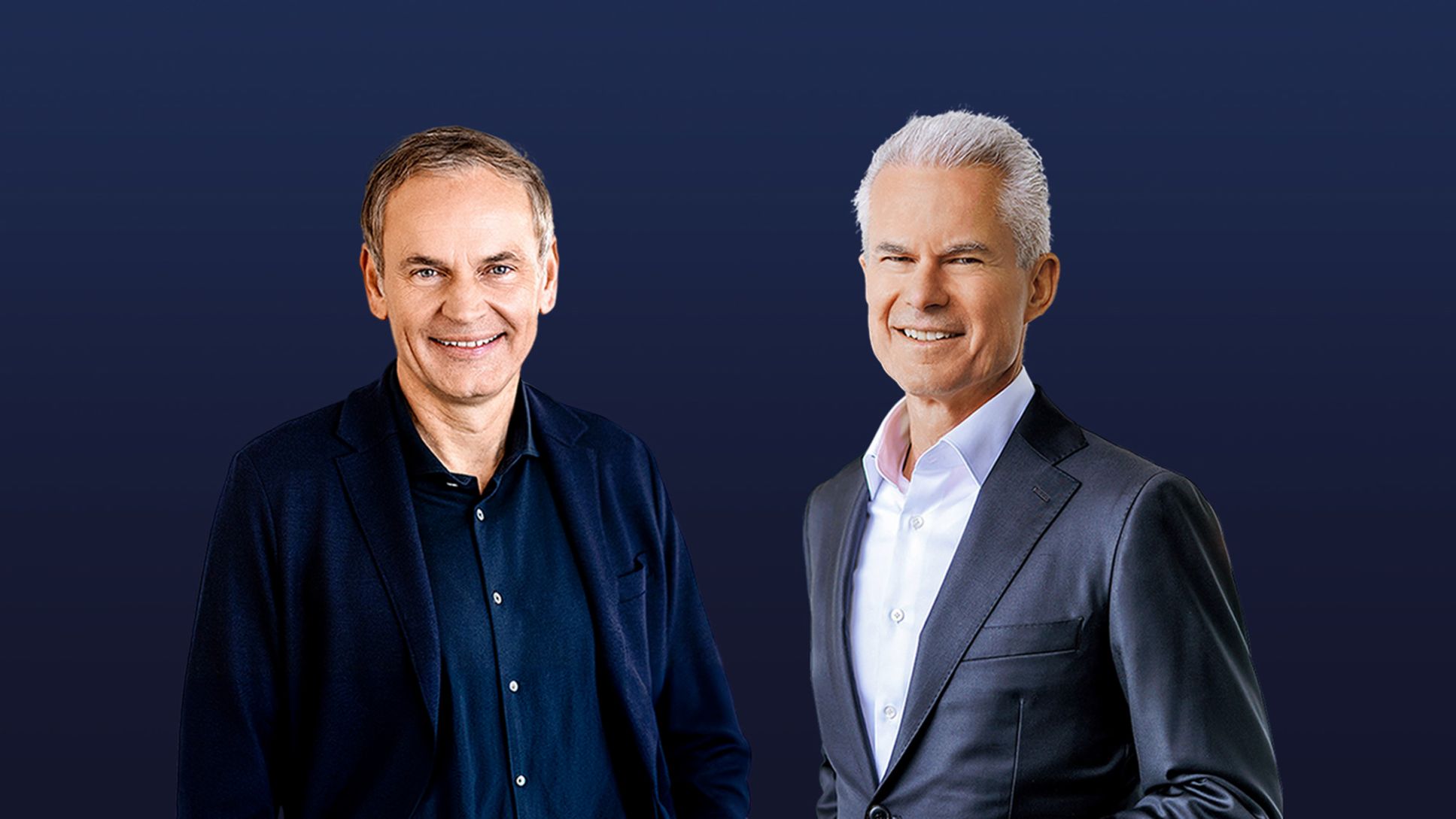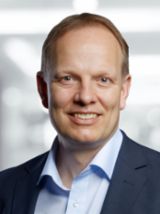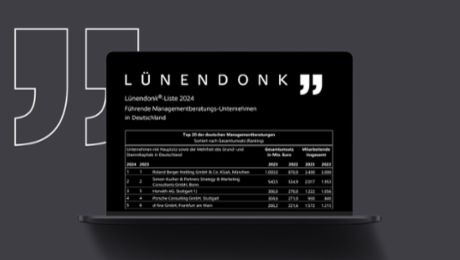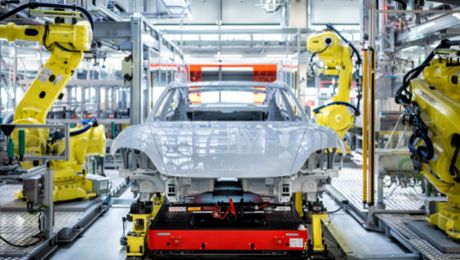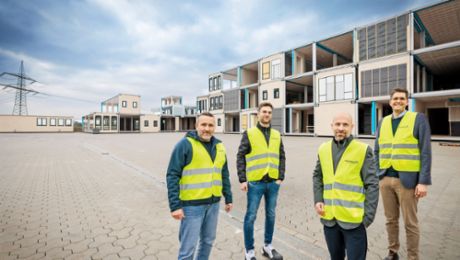Mr. Blume, is a good manager more of an optimist or a pessimist?
Blume: Very clearly an optimist. I myself am optimistic by nature. As a manager, I’m always thinking about opportunities. I want to build on successes. And learn from failures. What’s crucial is to have the courage to pursue the right thing. And to inspire others in the process. Making cars is a team sport. And success consists of teamwork. When everyone works together and pursues a common goal, you can move mountains together. At the same time, it’s also important to assess business conditions continuously, objectively, and realistically, in order to draw the right conclusions.
That sounds like coaching a sports team — you’ve got to explain that …
Blume: It’s a good analogy. Winning teams are powered by a shared spirit, fairness, and passion. What’s true of sports here is exactly the same for successful companies. It’s about going the extra mile. And fighting for every yard. By every single member of the team.
Weiblen: When times are tough it’s all the more crucial for managers to be optimistic. We are the “leadership personnel.” Like good mountain guides, we’re responsible for making sure the team reaches the summit. And that’s only possible if you yourself are sure you’re on the right path and your goals are attainable. Some business leaders do a lot of complaining. But complaints have never attracted any customers. You have to address negative developments openly, and not pass over any unpleasant topics. But you can’t gripe — instead, you tackle things head-on. At times like this, we need speed and the ability to take quick action at the right moment. I like your comparison with a sports team, Oliver. When the opposing team kicks the ball, you have to sprint too. That applies to soccer fields and companies alike.
Is it really that simple? Is success simply a matter of believing in it?
Blume: At least you can say that those who believe in success have a good chance of achieving it. Success is plannable. I saw that again and again during my time as Chairman of the Board of Management of Porsche AG. We’re visionaries as well as doers. There’ll always be setbacks, but you can’t let them get you down. Everyone makes mistakes. What’s important is to learn from them, to grow, and improve. That’s why, in my view, even mistakes contain opportunities.
Weiblen: Optimism is more than just hoping things will work out. It’s also always grounded in your own abilities, in trusting what you can do. The lessons you’ve learned from previous experiences are another key component.
Can you give us an example?
Weiblen: As a very young consultant I once did a project with a carmaker in Spain that was having some significant production problems. Its managers were sure everything was fine and there wasn’t any need for change. But I had filmed the problematic parts of the plant the previous evening and could show the whole team — who were all men — that they were wrong. I admit that there was a smart-aleck quality in showing people up like that. It wasn’t exactly a hit among the Spaniards, who have a certain pride. And probably wouldn’t have gone over well in any other country, either. I’ve never made that kind of presentation mistake again.
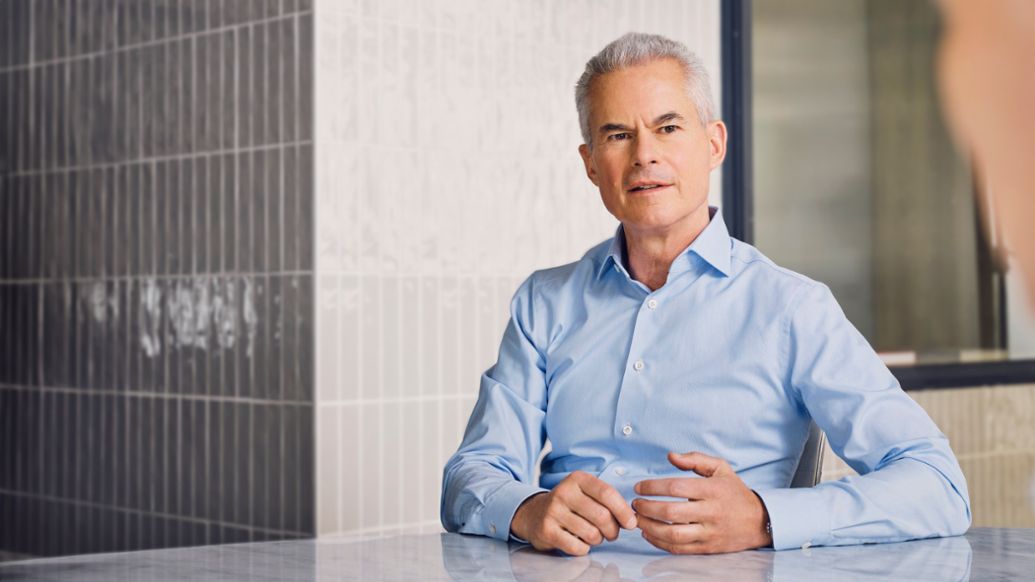
And what do you do when the problems go beyond cultural misunderstandings?
Weiblen: Every crisis contains an opportunity. Spotting it and making use of it are what good managers are supposed to do. I’m deliberately using the plural here, because solo management decisions are a thing of the past. The only way for a company to solve increasingly complex challenges and to be successful is for its leadership team to have a strong spirit of collaboration and mutual support.
Blume: A good example here is how we’re electrifying our cars. At Porsche we decided to go for electromobility back in 2015, which was earlier than a lot of our competitors. That took quite a bit of courage. Today we see that the Taycan is a big success. Our courage paid off. And we’re continuing to build on this success. This year we’re bringing out the second generation of the Taycan and the all-electric Macan. Our product strategy is focused on being able to deliver more than 80 percent fully electric vehicles in 2030 — depending on customer demand and the development of electromobility in different parts of the world.
That’s an ambitious goal. But how has switching to a new drive system affected Germany as a site for the automotive industry? Is our flagship industry at risk?
Blume: No. I’m an optimist here too. The German automotive industry leads the world in many areas. The next five years, however, will see bigger changes than in the past fifty. Our chances of emerging from this transformation as a winner are good. As far as global competition goes, we have many aces in our hands: qualified and motivated people at our companies, our dual vocational study and training system, renowned universities, and world-famous research institutes. The country’s innovative power continues unabated. You can see that in the number of patents our companies are producing. A pioneering spirit has always been key to Germany’s success, coupled with the extensive experience and high quality of our industries.
Weiblen: I like this positive view of the world. Even if some discussions suggest otherwise, Europe has by no means been overtaken by China, particularly when it comes to cars. Sure, the race has become tighter. And the pace has picked up, for reasons of China’s size alone. It has more people, and more graduates. We in Europe simply have to make better use of our resources — and of course also try to recruit the world’s most talented people. As a global consultancy, we find that easier than other companies. But it would help us, too, if Germany were more attractive to highly qualified immigrants. We have more than 30 nationalities on our team. I was impressed, Oliver, when you spoke out against extremism and for solidarity at the demonstration in Wolfsburg. It’s important to take a stand, not just to criticize. Participation is what gives life to democracy and social cohesion.
Blume: Speaking at the rally in Wolfsburg was very important to me personally. Managers, too, have to actively promote cohesion in our society. Anyone looking at Germany these days will see a country in action. Many people are going out onto the streets and taking a stand — for democracy, solidarity, and freedom. They see the importance of speaking up and getting involved. They want to join the debate on something very essential and fundamental: how we live together. It’s about our home, our country, our society. We’re showing our colors by standing up for democracy and freedom. For diversity and openness. For respect and tolerance. Together with others we’re standing for everything that has made our country strong over the past decades — and will keep it strong.

It's also about Germany’s future as a business location.
Blume: We are firmly committed to Germany as an industrial base. We’re investing in our sites and securing jobs. It’s essential to draw on our strengths, operate globally with a future-oriented strategy, act regionally, and think in terms of opportunities. What we need are even better framework conditions for research and industry. The transformation going on right now, especially in the automotive industry, needs to be powered jointly by business, government, and society. Generally speaking, Germany is still too attached to familiar structures. With attractive background conditions for jobs, taxation, and prosperity, we can bring our location back to the forefront. It’s crucial that we concentrate our energies and move quickly.
You mentioned international competition. What are your thoughts on the isolationist tendencies we’re seeing in many places?
Weiblen: Let’s take semiconductors, for instance, specifically the complex chips installed in cars: from the raw materials to the finished product, we’re talking as many as 1,200 production steps. Components and materials can cross up to 70 borders, and some of them go back and forth several times between Europe and Asia. These highly technical products haven’t been made “locally” for some time now. No country can do it all on their own. Not even the USA, nor China for that matter. High-performance chips are global products. As such, the thought experiments about autonomous production we’ve recently been seeing in many countries are not realistic. The more success that companies and the economy in general can attain, the more interconnected we are, and yes, the more dependent we are on each other.
So what should we do?
Blume: Ultimately, it’s a matter of identifying prospects and providing guidance. In Germany, right now we have to focus on the right issues. On future-oriented matters. We have to make strategic decisions on what areas of technology we want to excel in: semiconductors, software, cars, chemistry, medical technologies, batteries. Renewable energies of course. Sustainability is one of the most important responsibilities of our time.
Products aren’t just a matter of materials. They also need workers. Do the two of you see any problems associated with aging demographics, generation Z, or desires for a work-life balance?
Blume: I’m fortunate to head a company that has always placed a premium on continuous learning — for our workforce everywhere, by the way, not only in Germany. Lifelong learning means that people can continue to do highly qualified work at an advanced age. We’ve therefore consistently invested in improving the working conditions at our production facilities, and either eliminating or highly automating any hazardous, harmful, or strenuous activities. Our focus is on people.
Weiblen: It’s completely normal to see some generational friction and for ideals to evolve. I, too, had many discussions with my parents that helped me forge my own approach to work and success. Aside from that, health has improved overall. A century ago, 50-year-old people were often no longer fit and felt “old.” Today, no 50-year-old would say that. Instead, they feel in the prime of their lives. And that’s a good thing. Longer lifespans are one of the results of medical and technological progress. That’s another example of success.
Despite that, one hears a lot of criticism in Germany these days. Especially from young people who are very worried about how climate change will affect their future.
Weiblen: I totally get the fears of the younger generation. It’s our responsibility to leave the world a better place. Combatting climate change costs money. As do addressing demographic shifts, maintaining and expanding infrastructure, upgrading the military, integrating migrants — to list just a few examples. The only way to master these challenges is by working together. Each generation has to do its part. It’s essential that we substantially increase our innovative power and productivity. That’s the only way to fund the investments we need to make. History has shown that technological advances always release new energies. We’ve never had so many researchers and developers. New ideas arise every day. We need to ensure that our research also leads to marketable products. That’s what’s making me optimistic, especially with regard to the future.
Blume: It’s everyone’s job to ensure that the world is a good place for future generations. At Porsche we take a comprehensive view of sustainability — in economic, environmental, and social terms. For us, economic success, environmental awareness, and social responsibility complement each other. The electrification of our vehicle range reflects this. At Porsche we’re also working to achieve a carbon-neutral value chain for our new cars by 2030. At the Volkswagen Group we’re partnering with companies to develop and optimize recycling processes for high-voltage batteries, so we can keep using the huge amounts of valuable substances they contain.
Are you counting on technology to solve the climate problems?
Blume: Intelligent use of technology is the best way forward — I’m convinced of this. Electromobility is the future. I’m a big fan. And we take a broad view of climate protection. So we’re going for “e” in two ways: electromobility and e‑fuels. Renewable synthetic fuels give combustion engines the potential to be nearly carbon-neutral. We’re thinking about existing fleets here that will still have combustion drives for years. There are around 1.3 billion vehicles with combustion engines on the roads right now and many of them will be around for a long time. Adding e‑fuels to gasoline can lower carbon emissions. Porsche is a pioneer in promoting this development. At a pilot plant in Chile, we and our partners are showing how production can work on an industrial scale.
Technologies like that are expensive. Can our society afford them?
Weiblen: That’s more a question of priorities. We can’t do everything, so we have to invest in the right areas. As someone who does a lot of traveling, I’d like to see a high-speed European rail network that connects innovation centers with each other. Or a functioning hydrogen infrastructure that reliably and sustainably supplies our industry with energy. If we invest in the right technologies, we’ll get growth.
Blume: Growth from technologies that counteract global warming — I’m all on board with that. We want to be in the forefront here. Porsche stands for a pioneering spirit and athleticism. The heart of Porsche is our products, which combine our unique heritage with cutting-edge technologies. In innovative, sustainable, and exclusive ways. Every one of our cars is the fulfillment of a customer’s dream.
Info
Text first published in Porsche Consulting Magazine.
